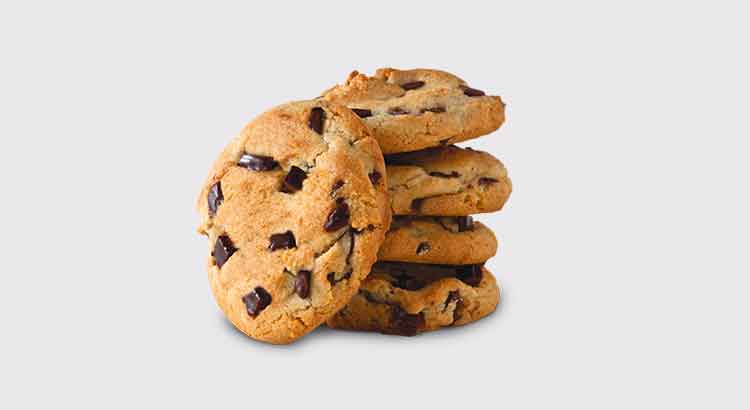We all love sinking our teeth into soft and chewy cookies that melt in our mouths. But sometimes, despite our best efforts, we end up with cookies that are hard as rocks. Don’t worry, though! We’re here to help you figure out what went wrong and how to avoid it in the future.
One of the most common mistakes that make your cookies come out hard is the lack of fats, such as butter, in the dough. Fats help to keep the cookies moist and tender by preventing them from drying out during baking.
In this article, we’ll explore seven common mistakes that can cause your cookies to come out hard instead of delightfully soft and tender. From using too much sugar to not preheating the oven, we’ll cover these missteps one by one and provide you with simple tips to overcome them.
Too Much Sugar
Sugar is an essential ingredient in cookies as it adds sweetness and helps with browning. However, using too much sugar can result in hard cookies. When there’s an excessive amount of sugar in the dough, it absorbs more moisture during baking, leading to a drier and tougher texture.
To avoid this mistake, make sure to follow the recipe’s recommended sugar measurements. If you prefer less sweet cookies, you can reduce the sugar slightly, but be cautious not to go overboard as it can affect the texture.
Wrong Flour Type
The type of flour you use can greatly impact the texture of your cookies. Using the wrong flour can make them hard and dense instead of light and tender. Different types of flour have varying protein contents, which affects the gluten formation and structure of the cookies.
For most cookie recipes, all-purpose flour is the go-to choice. It strikes a good balance between protein content and tenderness. Avoid using bread flour, which has a higher protein content, as it can result in tougher cookies.
If you prefer a softer texture, you can opt for cake flour, which has less protein and produces tender cookies. However, keep in mind that cake flour may alter the overall structure and shape of the cookies, so make sure to adjust other ingredients accordingly.
Lack of Fat
Fat is a crucial ingredient in cookie recipes as it contributes to their tenderness and moistness. If your cookies are turning out hard, it’s possible that there isn’t enough fat in the dough. Fat helps to keep the cookies soft and prevents them from drying out during baking.
Ensure that you’re using the correct amount of fat specified in the recipe. Common sources of fat in cookies include butter, margarine, or vegetable shortening. If you’re trying to reduce the fat content, be cautious not to remove too much, as it may affect the texture and taste of the cookies.
Improper Mixing
Proper mixing techniques are essential to achieving the desired texture in your cookies. Overmixing has already been mentioned as a potential mistake, but undermixing can also lead to hard cookies. Insufficient mixing may result in uneven distribution of ingredients, leading to pockets of dry flour or sugar that don’t get fully incorporated.
To ensure even mixing, follow the recipe instructions and mix the ingredients until they are fully combined. Use a spatula or a wooden spoon to gently fold the dry ingredients into the wet ones, taking care not to overmix. This will help you achieve a more uniform texture and avoid hard spots in your cookies.
Incorrect Butter Temperature
The temperature of the butter used in cookie dough plays a crucial role in the final texture of the cookies. If the butter is too soft or melted, it can cause the cookies to spread excessively during baking, resulting in thin and crispy cookies. On the other hand, if the butter is too cold, it may not mix well with the other ingredients, leading to a denser and harder texture.
To achieve the ideal butter consistency, it should be soft enough to be easily creamed with the sugar but not melted. Take the butter out of the refrigerator in advance and let it come to room temperature, usually around 68-70°F (20-21°C). This will allow the butter to soften without becoming overly melted.
Too Much Flour
Adding too much flour to your cookie dough can result in a dry and crumbly texture. Flour helps provide structure to cookies, but an excessive amount can absorb too much moisture during baking, making the cookies hard.
To avoid this mistake, measure your flour accurately. Use the spoon and level method: gently spoon the flour into the measuring cup and level off the excess with a straight edge. Avoid packing the flour into the cup, as this can lead to using more flour than needed.
If you find that your cookies consistently turn out too hard, you can try reducing the amount of flour slightly in your recipe. Experiment with small adjustments until you achieve the desired texture.
Not Preheating the Oven
Preheating the oven is a crucial step in baking cookies. If you skip this step and place the dough in a cold oven, it can lead to cookies that spread too much and become thin and crispy.
Preheating the oven allows the cookies to bake at the proper temperature from the start, resulting in a more even and controlled baking process. This helps the cookies retain their shape and develop a desirable texture.
Before baking your cookies, always preheat your oven to the specified temperature in the recipe. Give it enough time to reach the desired temperature before placing the cookie sheet in the oven. This ensures that your cookies bake properly and maintain a soft and chewy texture.
Remember, small details like preheating the oven can make a big difference in the outcome of your cookies. So don’t overlook this crucial step in the baking process.
Final Thoughts
And there you have it! Those are seven common mistakes that can cause your cookies to turn out hard instead of delightfully soft and chewy. Baking is a wonderful and delicious art, but it does require attention to detail. By avoiding these pitfalls, you’ll be well on your way to baking the perfect batch of cookies every time.
Remember, baking is all about experimenting and learning from your mistakes. Don’t get discouraged if your cookies don’t turn out exactly as planned. Take note of what went wrong, make adjustments, and try again. With practice and a little bit of patience, you’ll soon become a cookie-baking pro.
So, roll up your sleeves, preheat that oven, and get ready to bake some amazing cookies. And don’t forget to enjoy the process! Baking is not just about the end result; it’s about the joy of creating something delicious and sharing it with loved ones. Happy baking!

